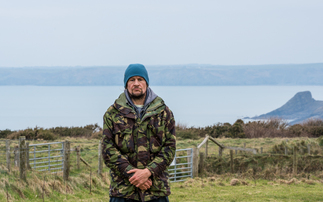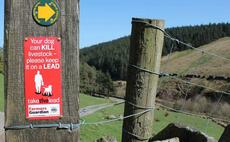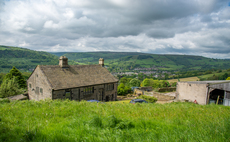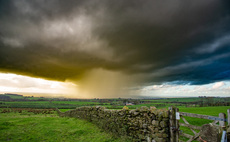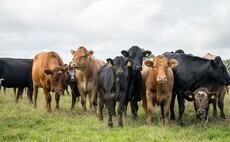
Filming at a farm estate: Oscar winning actor Cillian Murphy while on the set of Peaky Blinders.
Diversifying into film location work can provide valuable additional income for farm, rural and estate businesses.
Providing the right location – whether that's a stately home, a cottage, woodland, gardens or moorland – can be a useful source of additional income for rural owners and businesses who are prepared to make their property available as a location for film or TV.
One property which has had great exposure in recent years is Arley Hall and Gardens near Northwich in Cheshire.
READ NOW: �������� under pressure to diversify and find alternative income streams
Arley Hall has featured heavily in the BBC series Peaky Blinders, starring the Oscar winning actor Cillian Murphy, and more recently as a key locations for the Netflix blockbuster Fool Me Once, BBC 2's Gardeners' World, Coronation Street, and Hollyoaks.
Rowland Flower, trustee of the Arley Estate, commented: "We have been fortunate enough to attract a wide array of different film and television productions over the years.
"There is no doubt that maintaining good relationships with location managers; showcasing the entirety of one's offering; being able to provide extensive parking facilities; and allowing sufficient flexibility during filming all contribute to greater success in this potentially lucrative area."
Martyn Dobinson, partner at chartered accountants Saffery, highlights some of the important considerations.
Get listed
Approaches out of the blue are rare so the usual route to making your property available is to register with a location agency. Registration is usually free, although the agency will take a commission if your listing results in a filming contract. The agency will require a photographic portfolio showing what is available so that they can pitch your property for future productions.
Access
Crews can vary considerably in size, but feature films need access for truckloads of equipment and baggage. Extensive accessible parking is usually a must. The property owner needs to specify in their contract with the production company what restrictions on access there are including what areas are off limits for filming.
Liability
The film company should have its own liability insurance cover for any accidental damage to your property or contents. Be sure that this cover is in place before any activity commences and retain a copy of all necessary insurance documentation. The film maker may also want to make changes to your property, such as redecoration. These details, as well as the responsibility for any remedial or reinstatement work, should be agreed beforehand. It is recommended that valuables are stored away safely and securely.
Exposure
Where a property is open to the public, or operates as a wedding venue, for example, exposure through a film or TV programme can significantly increase appeal. It could also add value to your property in the event of a future sale. There are also negatives, however, and for working farms and estates, or where the property is a private home, increased visitor interest and access may not always be a desired outcome.
Income
Fees from location work will be unlikely to provide a regular income stream over the longer term. Unless your property is cast as a regular location in a popular TV series, at best, filming income will be sporadic. It can, however, provide a welcome bonus or income boost. Location work for TV commercials can also be lucrative. If you have interesting items, such as chattels, plant, machinery, or even animals, that the production company may wish to use, an appropriate fee should be negotiated.
Occupation
A stipulation of the production company may be that you vacate your property for an agreed period of time and being off site can, in certain situations, be the sensible option.
Confidentiality
You may be required to sign a confidentiality clause to prevent disclosure of what is being filmed. Such clauses apply across all communications, including social media. Any press interest should be referred to the production company.
Experience
There are non-financial benefits too. Having a film or TV programme made at your property can be an interesting and memorable experience. You may have the opportunity to meet the actors and others in the production team, or even to feature as an extra!
Tax
There will inevitably be tax implications arising from letting your property as a filming location. Income will certainly be taxable, and all tax-deductible costs should be carefully recorded. If a property is let regularly for filming use, there could be Inheritance Tax implications. The implication of the structure of the contract and level of services provided by owners and their staff should be carefully considered.
Martyn Dobinson says: "Professional advice should always be taken before entering into any filming agreements or contracts."










